Dogs play many different roles in the lives of humans.
While most dogs act as companions and family pets, therapy dogs can help those who are struggling with mental health issues. Dogs can also offer support to handicapped individuals or to children with special needs.
Beyond this, you can find dogs that compete in agility trials, dogs that sniff out hidden items, and even diabetic alert dogs capable of monitoring your blood sugar levels.
Today’s roundup is reserved for the best dogs for protection. All the breeds we showcase today are suitable for guarding and protective duties so read on for some inspiration.
Best Dogs for Protection
There are many reasons why people want to invest in a guard dog. For some, it’s personal protection, and for others it’s safeguarding property. Some people just want a dog to act as a living doorbell when visitors arrive.
Regrettably, guard dogs have picked up a bad reputation for being dangerous or vicious. This is not always accurate. Many of the traits that render dogs ideal for protective duties also make them wonderful family pets. These qualities include:
- Loyalty
- Intelligence
- Lovability
AKC (American Kennel Club) reports that the most effective guard dogs are brave and devoted, and they know when it is necessary to confront and fight off an unwelcome intruder. These qualities do not necessarily translate to a vicious dog.
If you train a guard dog from a young age, you’ll find they become incredibly protective, but also remain loving and affectionate.
Where a watch dog will bark to alert you to danger or strangers, a guard dog is trained to bite or defend against attacks.
Explore some of the best canine breeds for protective purposes and see if any of these make the right choice for you and your family.
15 of the Best Dog Breeds for Protection
- Doberman Pinscher
- Great Dane
- Belgian Malinois
- Akita
- Cane Corso
- Bullmastiff
- Tibetan Mastiff
- Rottweiler
- Giant Schnauzer
- German Shepherd
- Dutch Shepherd
- American Bulldog
- Boxer
- Rhodesian Ridgeback
- Komondor
1) Doberman Pinscher
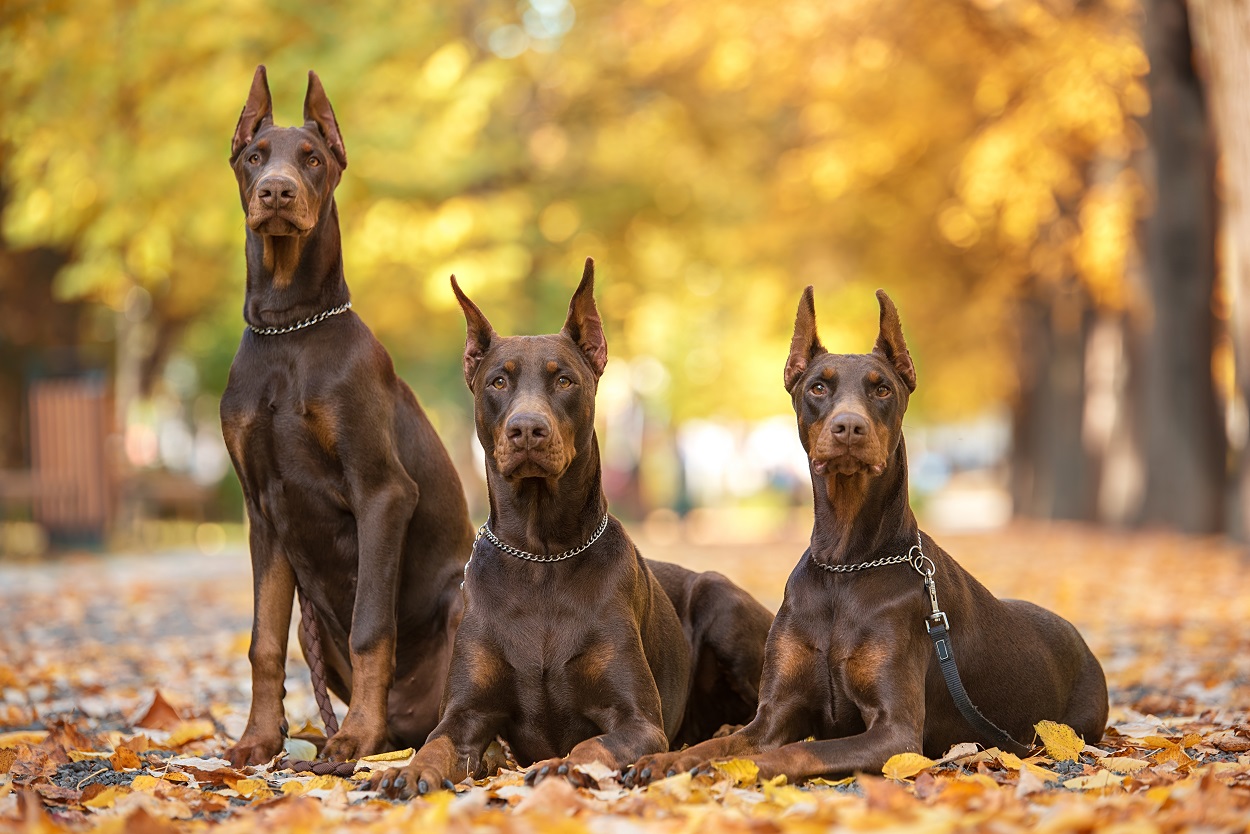
Doberman pinschers were developed to accompany tax collectors as they made their rounds collecting money.
This breed excels in almost any protective application. While Dobermans have the bravery and the imposing physical appearance to make great guard dogs, they are also sensitive and loving dogs who thrive as part of the family.
Doberman pinschers are from the same size class as shepherds and Rottweilers – more on these below – they are more agile and nimbler on their feet than those other big breeds. Additionally, Dobermans will require more exercise and more space to roam. Make sure you can provide this.
2) Great Dane
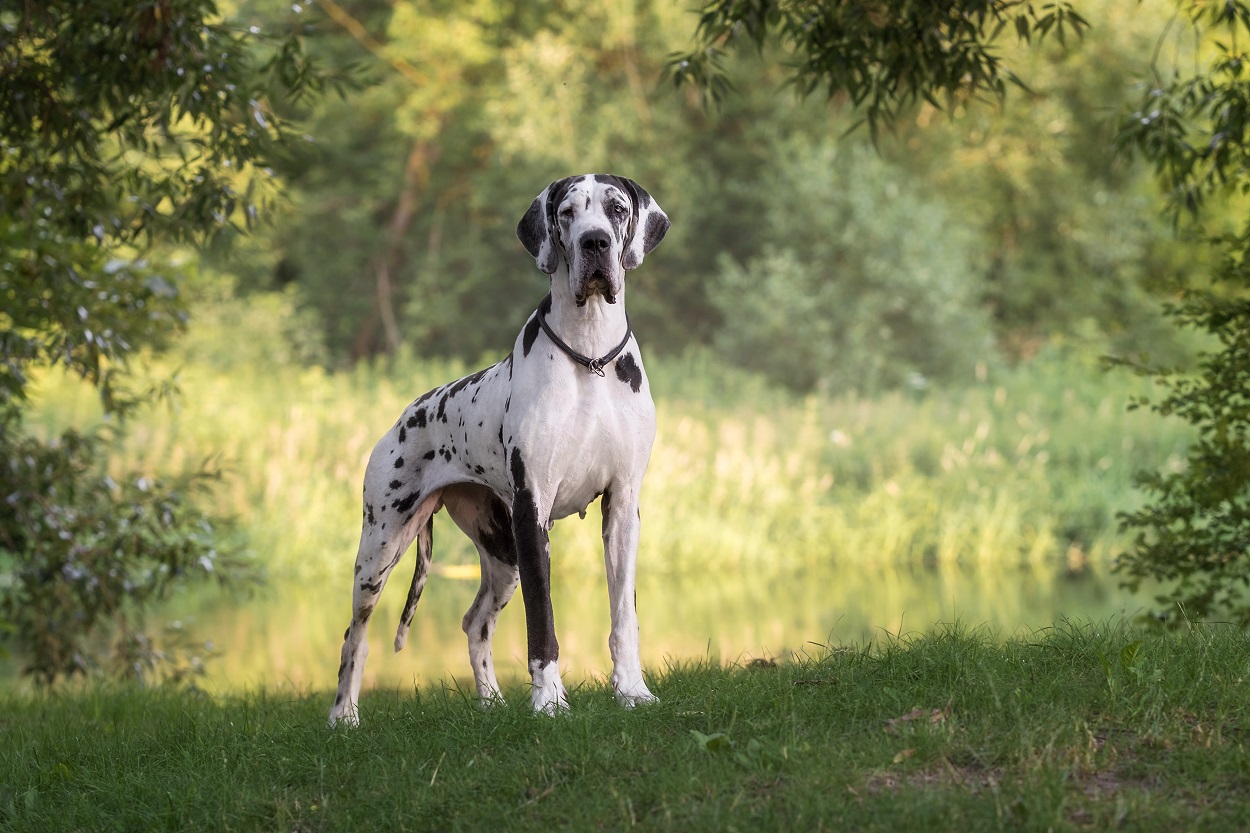
Great Danes are huge but gentle and sensitive beasts. This breed is famous for bonding powerfully with their owners.
Although this breed is not innately protective, defensive, or territorial, they are always ready to protect the safety of their family.
Many Great Danes weigh from 100 to 150 pounds, although larger examples can weigh upwards of 200 pounds.
Although Great Danes are quite well-suited for protective duties and guard work, this breed is not a smart bet for first-time pet parents. Check out our guide to the best breeds for first-time owners if you need a more manageable pup.
3) Belgian Malinois
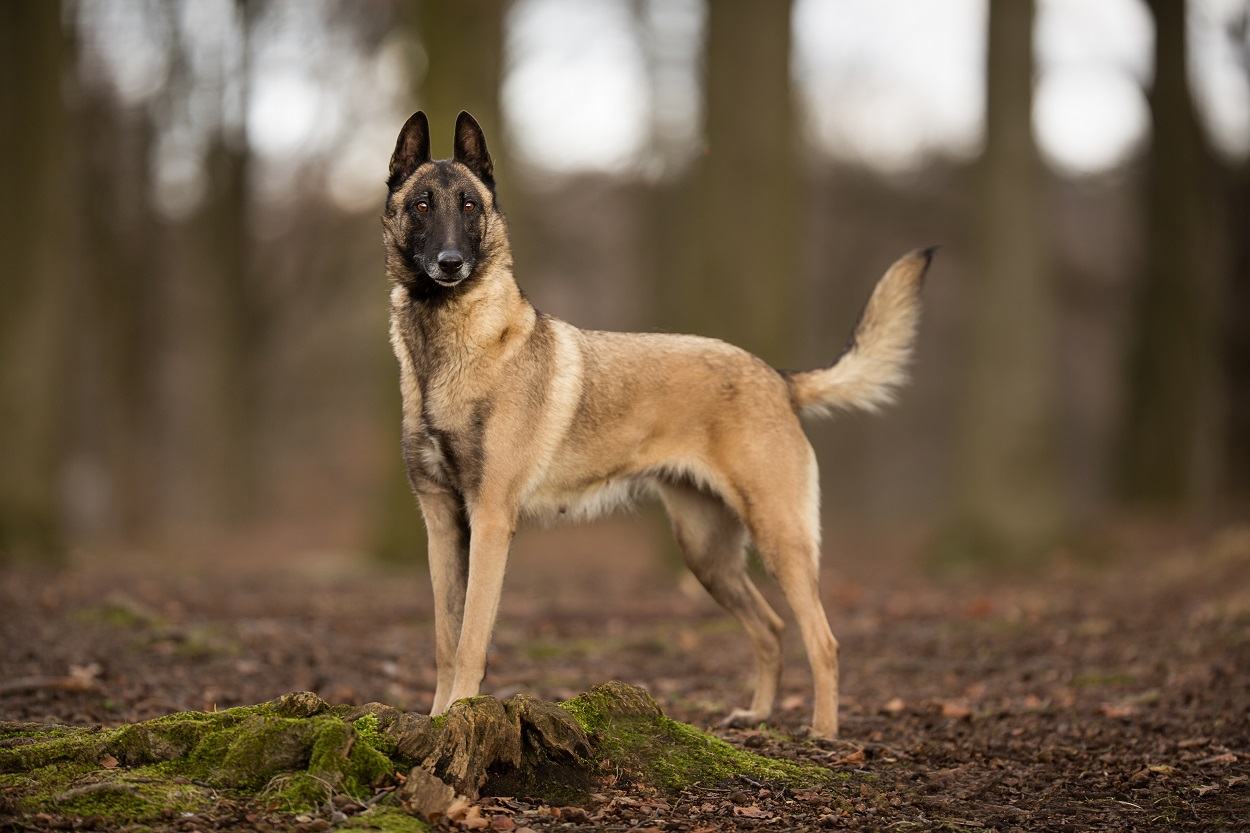
The Belgian Malinois is a breed used for professional protection the world over. These dogs are also commonly used in the United States in military and police units. With these credentials, the Malinois will have no problems protecting a family home.
These dogs look at a glance like small German shepherds, another breed that excels at protective duties. The Malinois has much more energy and intensity, though, meaning this breed can be challenging for some families. The Belgian Malinois is perfectly suited to full-time work.
Avoid these dogs if you have an inactive lifestyle or spend a lot of time away from home. If you have the experience to cope with this breed and the willingness to give them plenty of exercise, you’ll end up with a dog ideal for protection who is not too difficult to house or feed. Most Belgian Malinois weigh no more than 80 pounds.
4) Akita
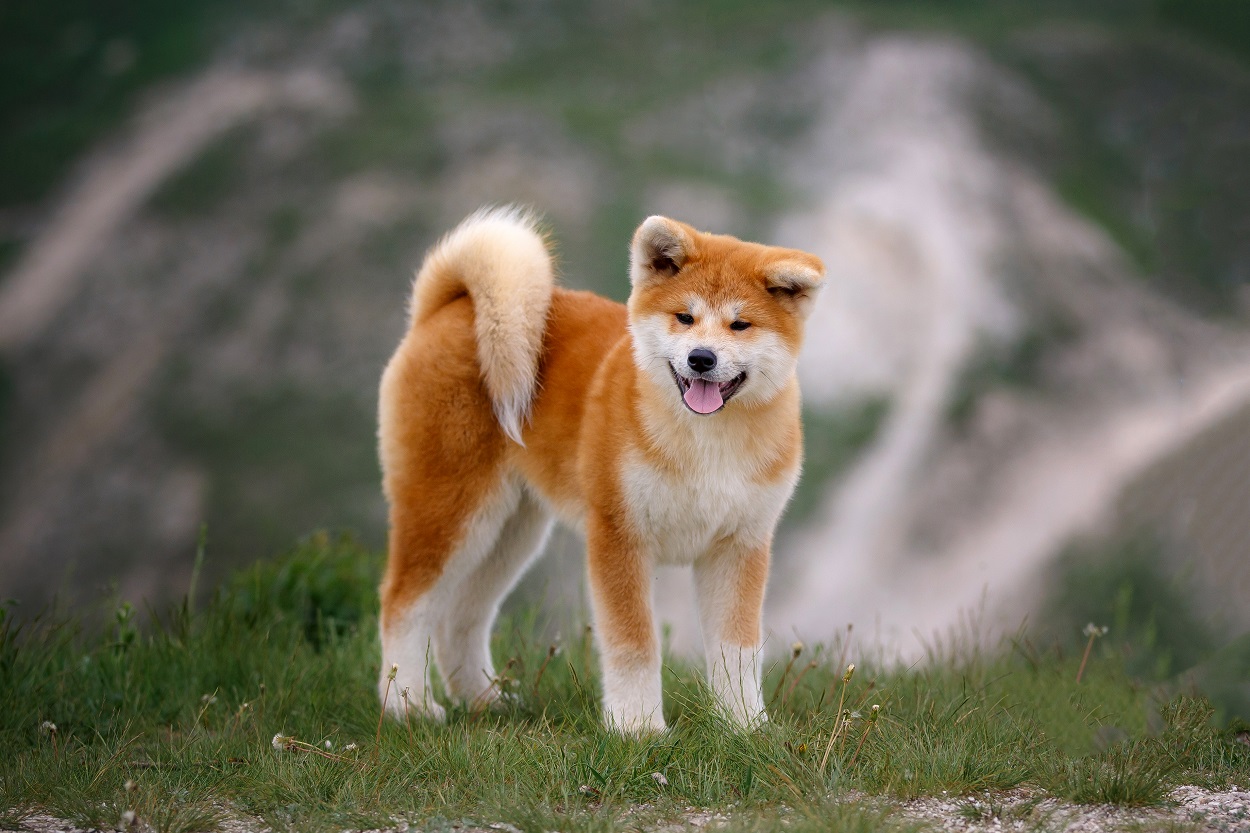
The Akita is among the most loyal dog breeds. Developed and bred for guard duties in feudal Japan, these dogs protected nobility and royalty.
Akitas are alert and courageous, as well as naturally wary of strangers. These dogs will watch over you and your family around the clock and be delighted to do so. The innate protective qualities of this breed means that they will take to guard duties with little or no training.
That said, you’ll need to ensure that an Akita gets obedience training. Socialization will also help to minimize aggression and standoffishness.
5) Cane Corso
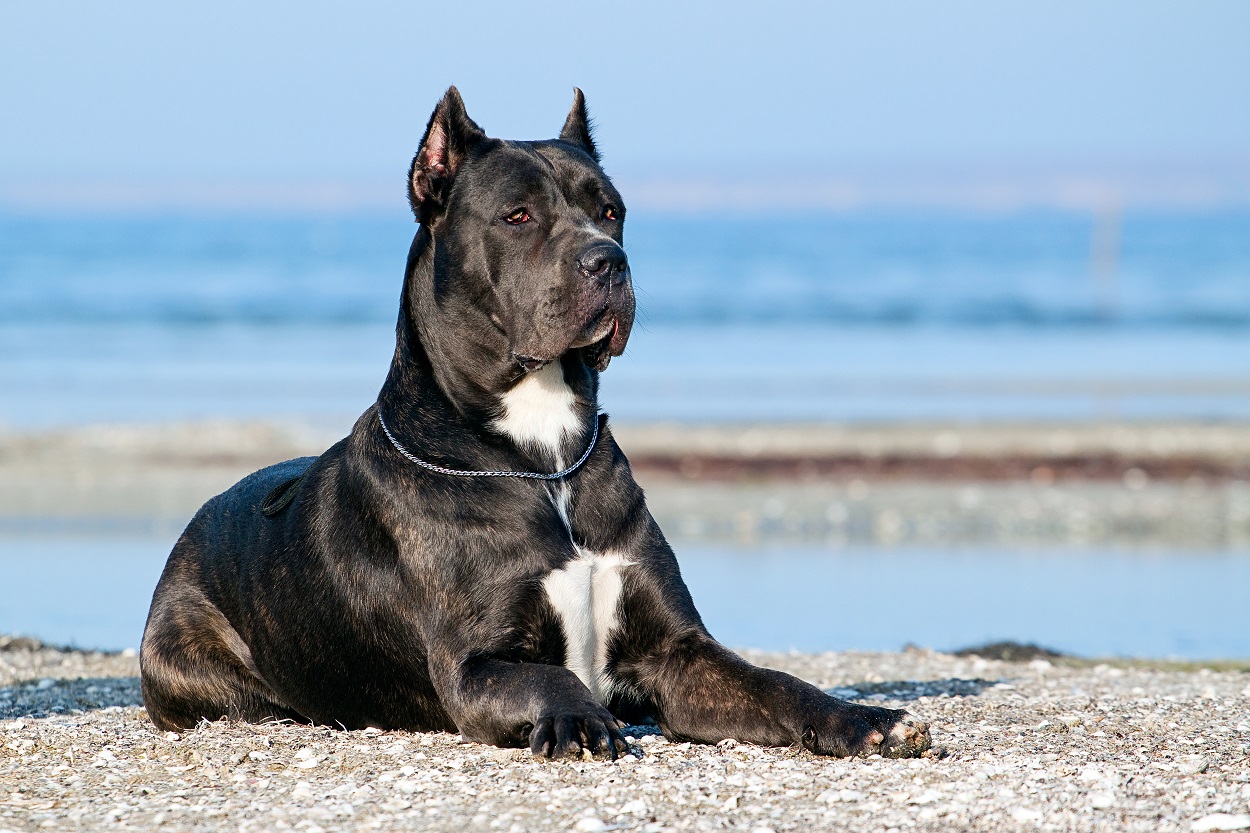
The Cane Corso is a breed named for the Latin expression bodyguard dog.
A huge Italian breed traditionally used for hunting, guard dog duties, and as a war dog, is heavyset with a deep and intimidating bark. As well, these dogs have a natural guarding instinct making them some of the best dogs for protection.
When training a Cane Corso, focus on obedience and sharpening the natural skills of this misunderstood breed.
6) Bullmastiff
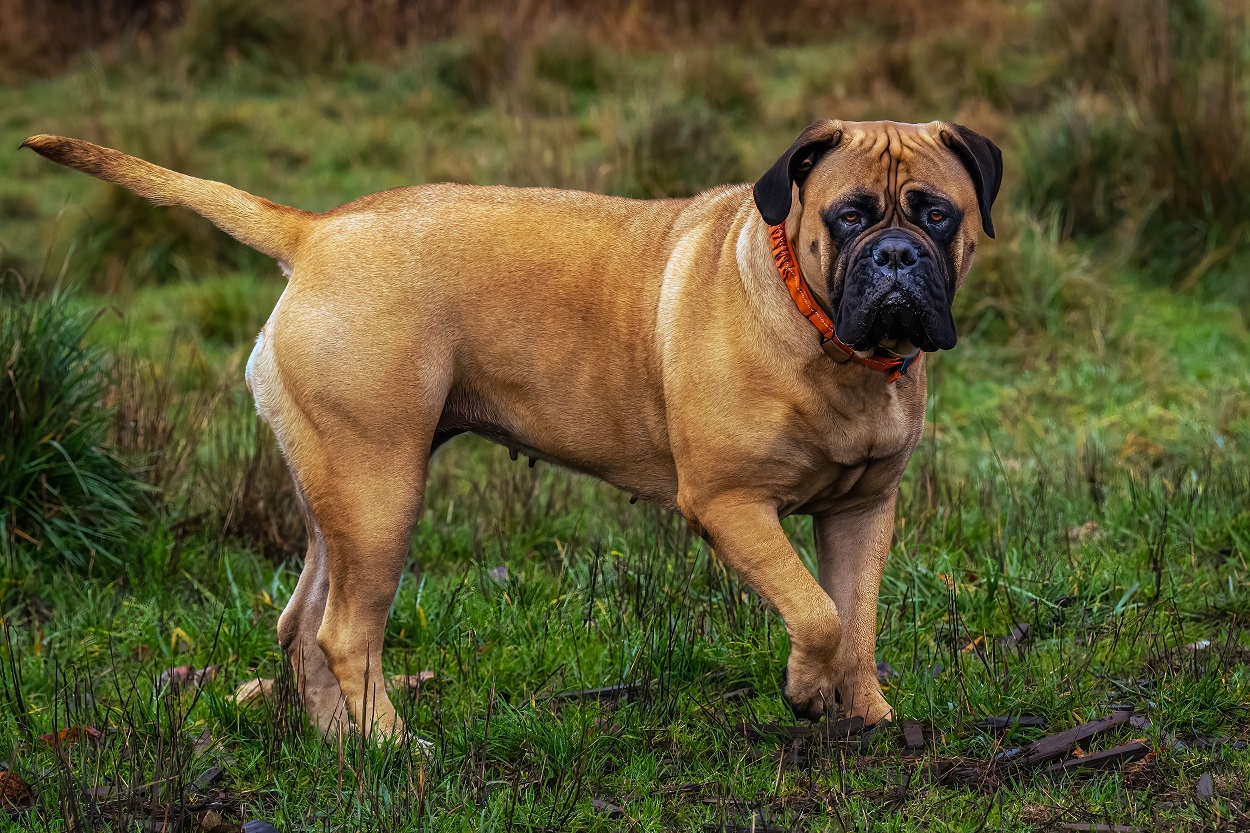
The bullmastiff is a brave and loyal breed first developed to help gamekeepers protect their livestock from poachers.
This dog is a great choice for protective duties since the bullish looks alone make the dog intimidating to most strangers.
Beneath the façade, bullmastiffs are loving and affectionate, slotting in well as a family pet or companion dog. A natural protector, you’ll need to give a bullmastiff structured training to strengthen those innate guarding instincts.
7) Tibetan Mastiff
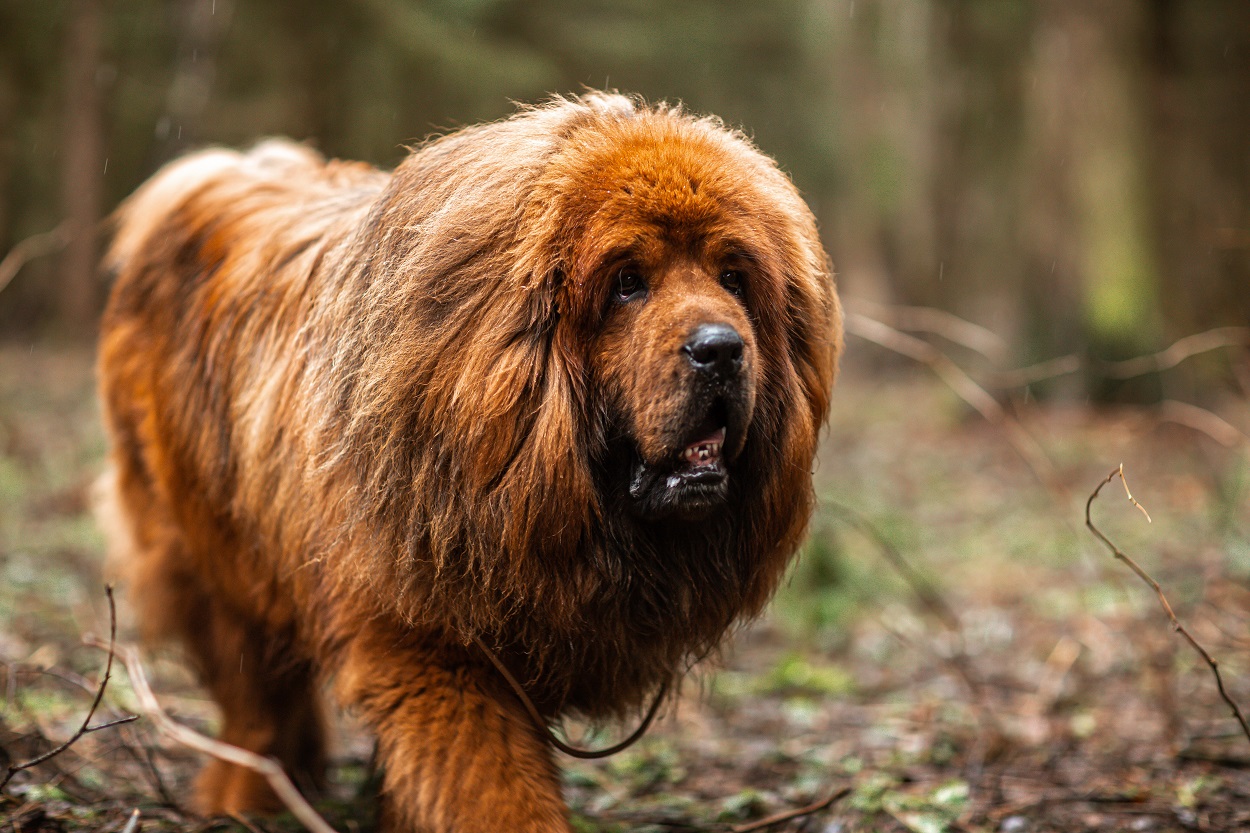
Bred in the Himalayas to guard humans and livestock, the Tibetan mastiff is among the most effective guard dogs due to this heritage.
Watchful, smart, and mentally sharp, this breed is also primitive, strong-willed, and highly territorial. Territoriality is so extreme in this breed that they may not allow visitors to enter the property at all.
If you want a Tibetan mastiff, you’ll need to dig deep – this is one of the most expensive dog breeds out there.
8) Rottweiler
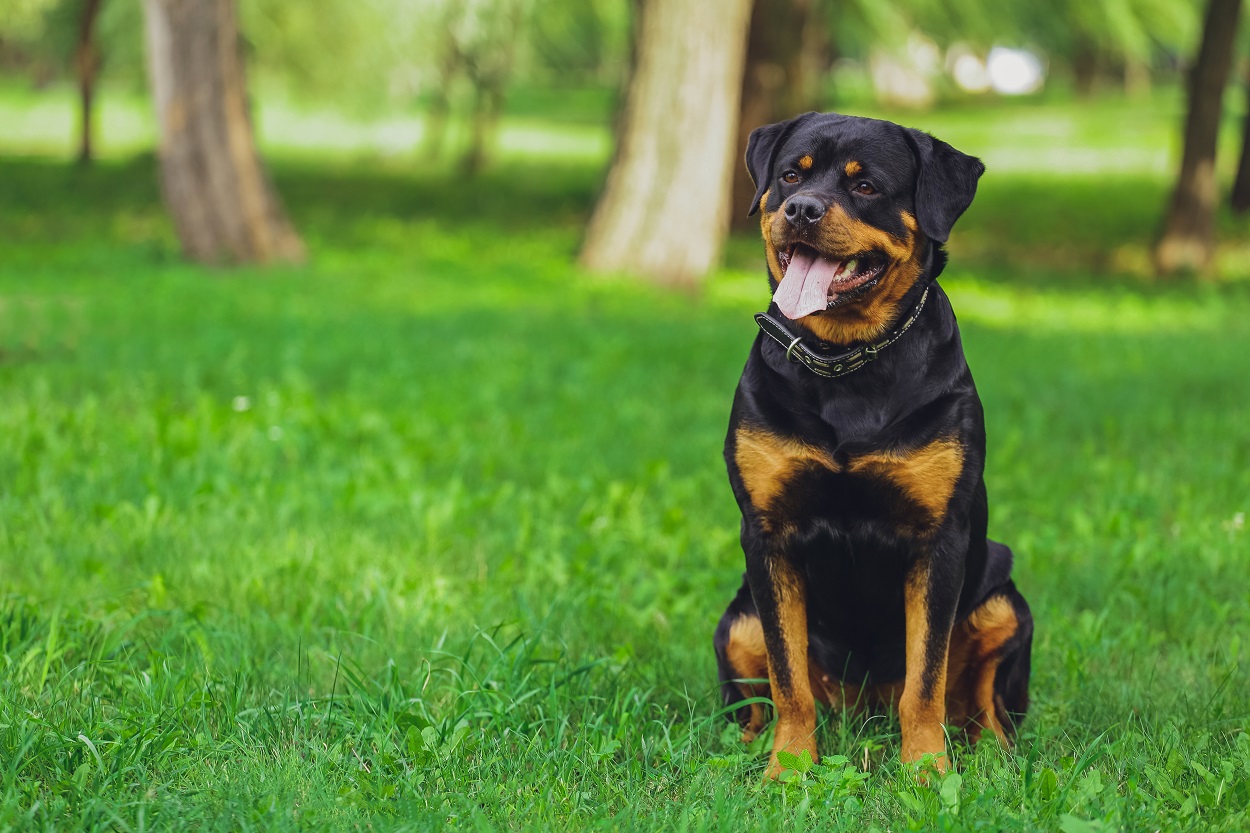
Rottweilers were first bred to accompany soldiers heading into battle and for cattle herding duties.
This breed is among the most intelligent and ideally suited to protective work. These dogs love their families to the extent they will protect them at all costs against any threat without hesitating for a moment.
Rotties are not the best choice for first-time or inexperienced dog owners. They require a calm and confident alpha to lead them. This breed also requires lots of attention and lots of vigorous exercise if they are to thrive.
Rottweilers are intellectually independent but emotionally dependent. They tend to be highly sensitive to the emotions of their owners.
9) Giant Schnauzer
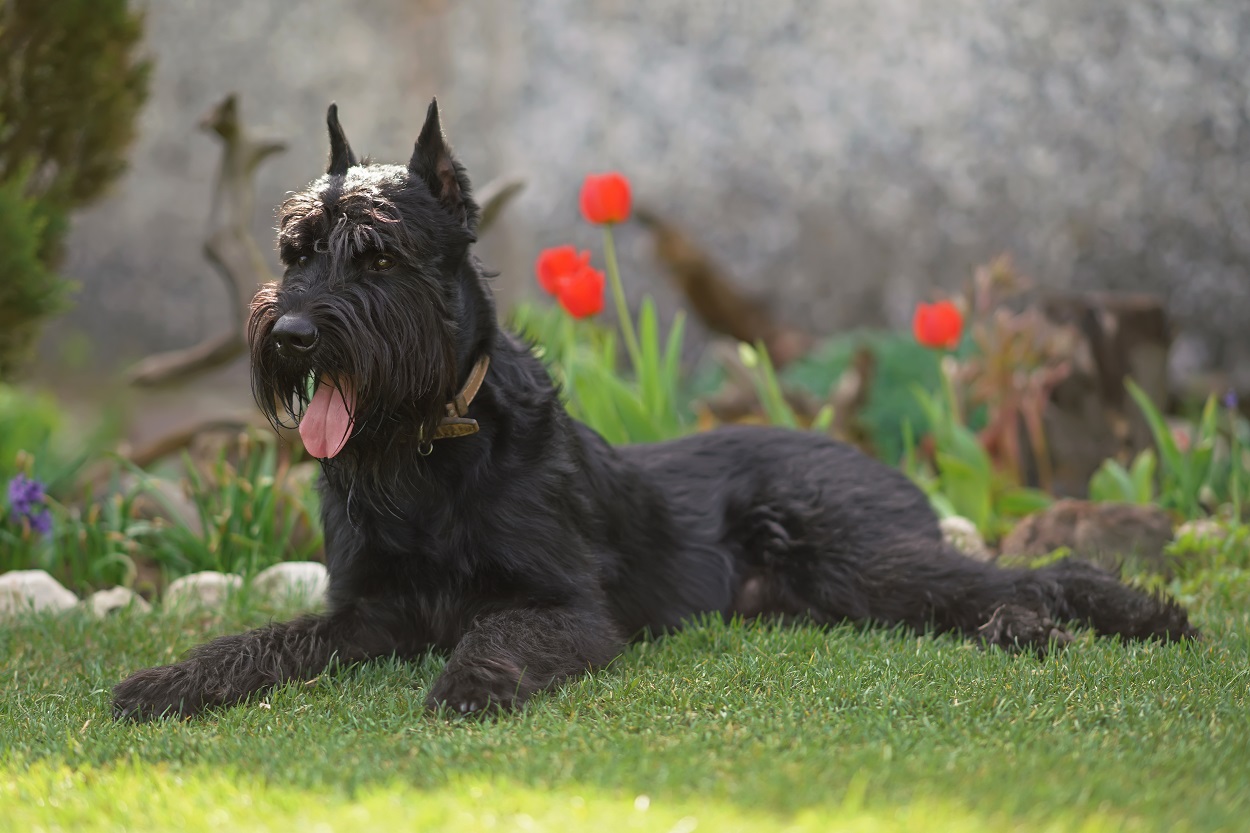
Giant Schnauzers are sensitive dogs and also loving and affectionate with their families. You’ll need to give this breed plenty of mental stimulation for them to be happiest.
Proud and fiercely territorial dogs, the size of the Schnauzer more than compensates for their refined appearance.
Mischievous and smart, this breed is not advisable for novice dog owners.
10) German Shepherd
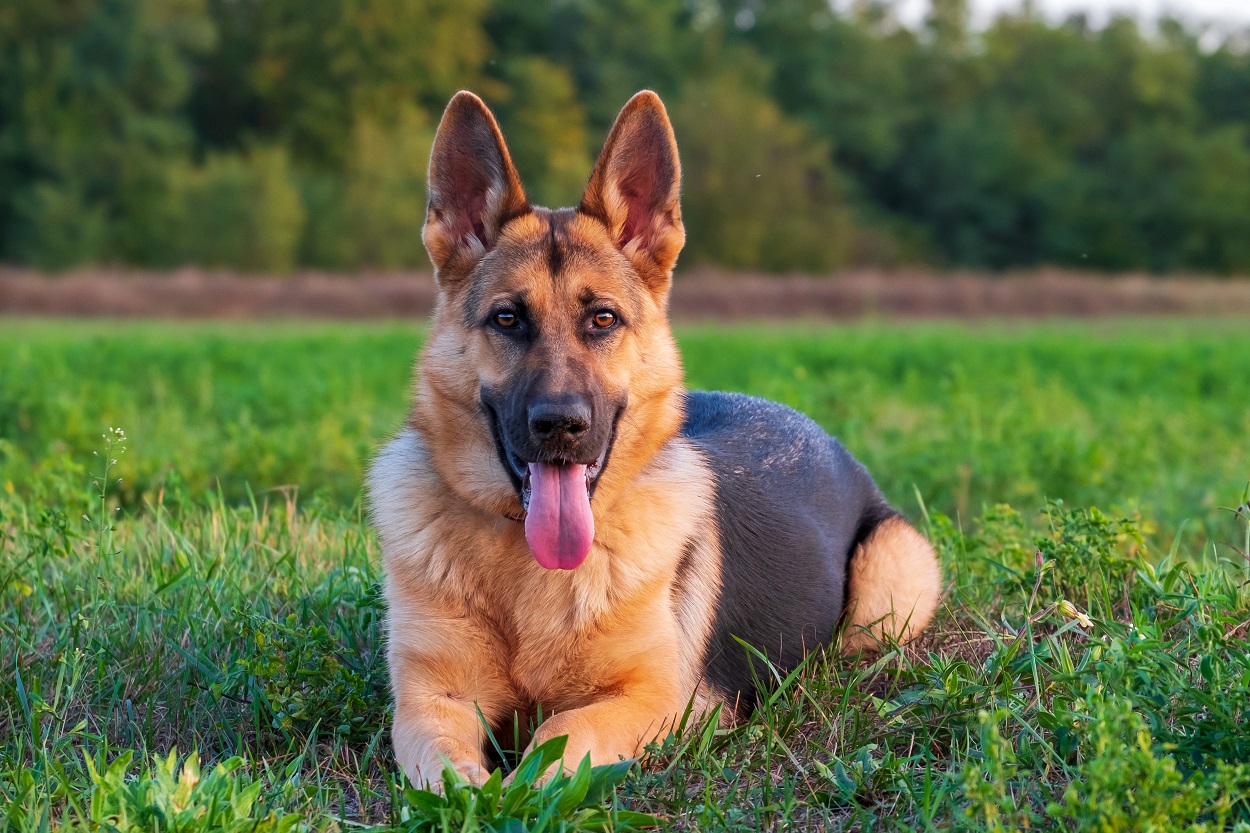
German shepherds are one of the most popular family pets, and they have also been used by police and military organizations for generations.
Brave, loving, and super-smart, shepherds possess all the traits found in the best dogs for protection. Beyond this, German shepherds are physically imposing, even though most GSDs do not exceed 100 pounds.
These dogs look bigger than they are due to their fluffy and lengthy coats, oversized ears, and broad barrel chests.
You will need to give these dogs lots of exercise, and you will also need to keep them mentally and emotionally stimulated. If a GSD doesn’t get enough human attention, they can easily develop ongoing behavioral problems.
Although German shepherds make great guard dogs, their coats shed heavily, so be prepared to invest time and effort into grooming your GSD.
11) Dutch Shepherd
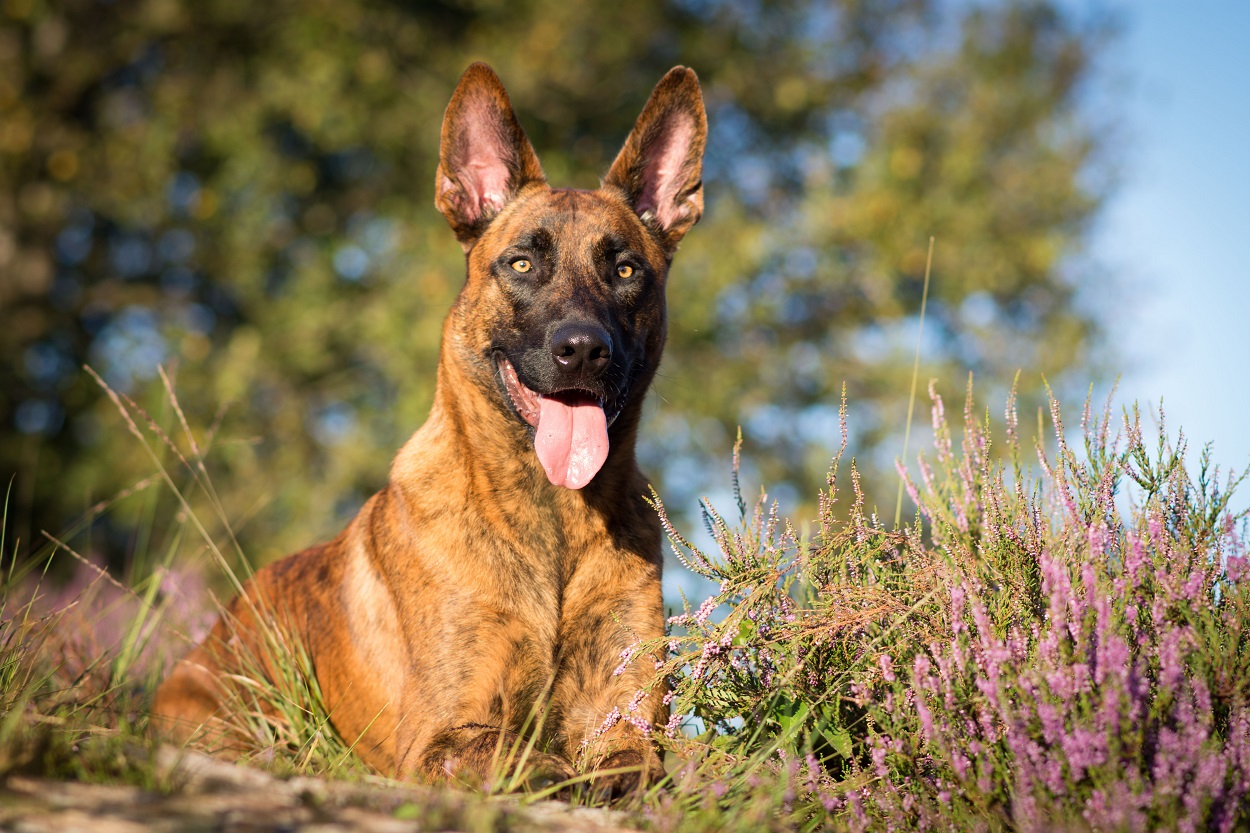
Dutch shepherds share many traits with their German and Belgian cousins. The Dutch shepherd, though, is often less challenging to train.
The Dutch shepherd suffers from fewer health complications than other shepherds, and they are also more difficult to find.
While this dogs only weigh 75 pounds and stand just 2 feet high, they have the courage, strength, and intelligence to compensate for the lack of physical bulk.
Dutch shepherds are often wary of strangers. Counter this with early socialization and training. This breed is a joy to train, and you shouldn’t meet too much resistance.
12) American Bulldog
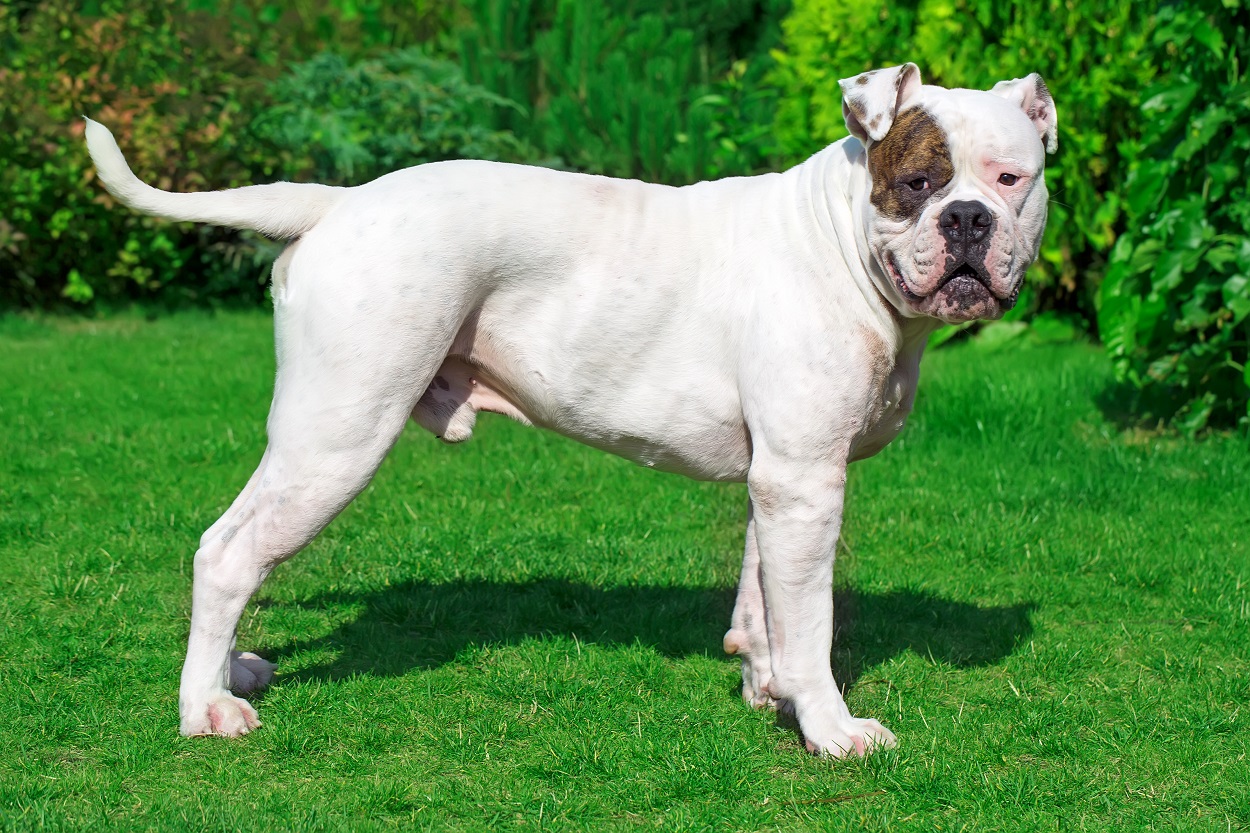
American bulldogs are affectionate, sensitive, and also highly protective of their families.
First bred to help with cattle control, this breed is energetic and brave in equal measure.
Bred for working purposes, American bulldogs need some kind of work – even if it’s just roaming the neighborhood with you – or they can develop behavioral problems.
There are many styles and subtypes of American bulldog, and many sizes, too. Smaller American bulldogs weigh just 50 pounds, while bigger examples can weigh upwards of 125 pounds. Most stand roughly 2 feet high, but some American bulldogs stand up to 28 inches tall.
These dogs are not especially smart, but they are usually straightforward to train.
American bulldogs are demanding, both in terms of training, and also the amount of stimulation they require. If you don’t have the time and attention to devote to these dogs, we would suggest exploring other breeds.
13) Boxer
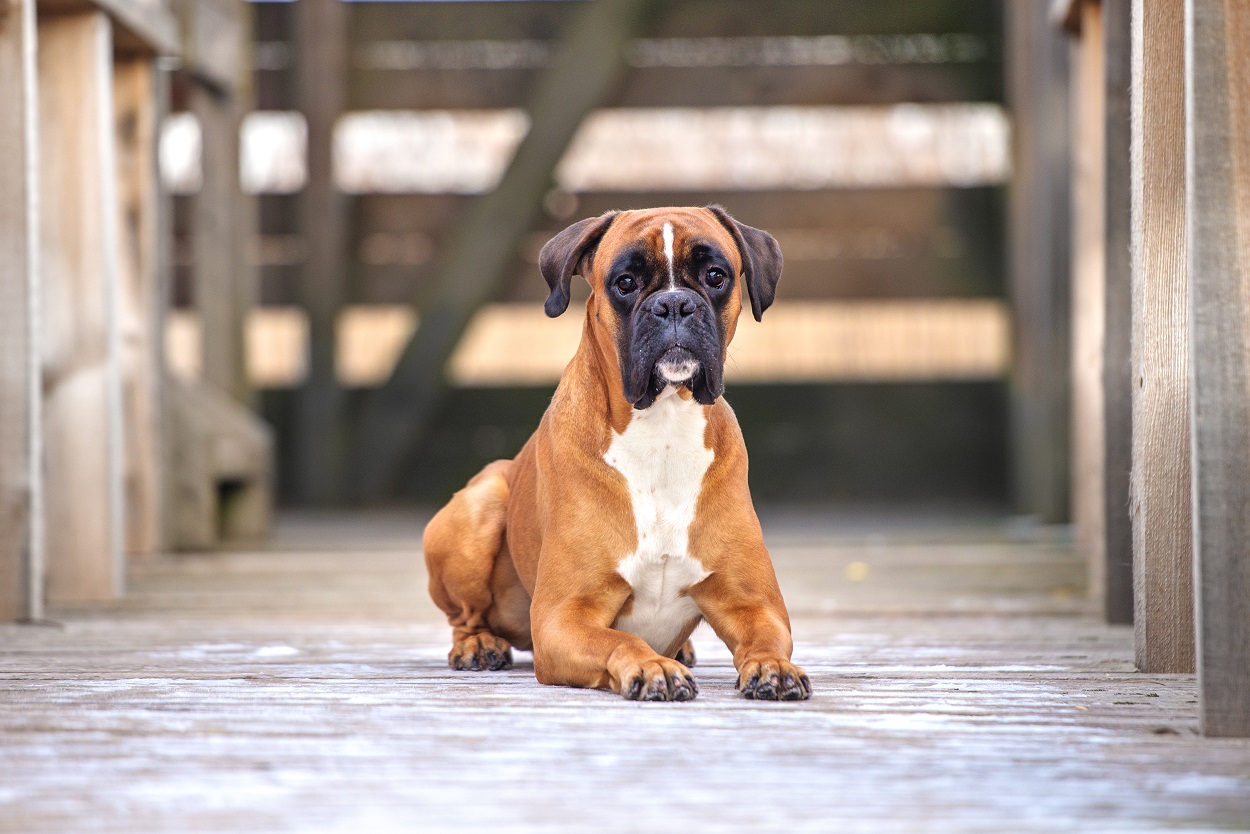
Boxers are notorious happy among friends and family, but they can also be surprisingly good guard dogs. Indeed, this was why these dogs were first developed.
Weighing around 75 pounds, boxers are smaller than many guard dogs, but they have impressive and muscular physiques, and they also have very high energy levels. This can help them to present a commanding physical presence.
Smart, easily trainable, and very lovable, boxes are also one of the most loyal breeds. Boxers interact well with children of all ages and make superb family pets. When needed, though, a boxer will snap into protective mode and fiercely protect their family and property.
14) Rhodesian Ridgeback
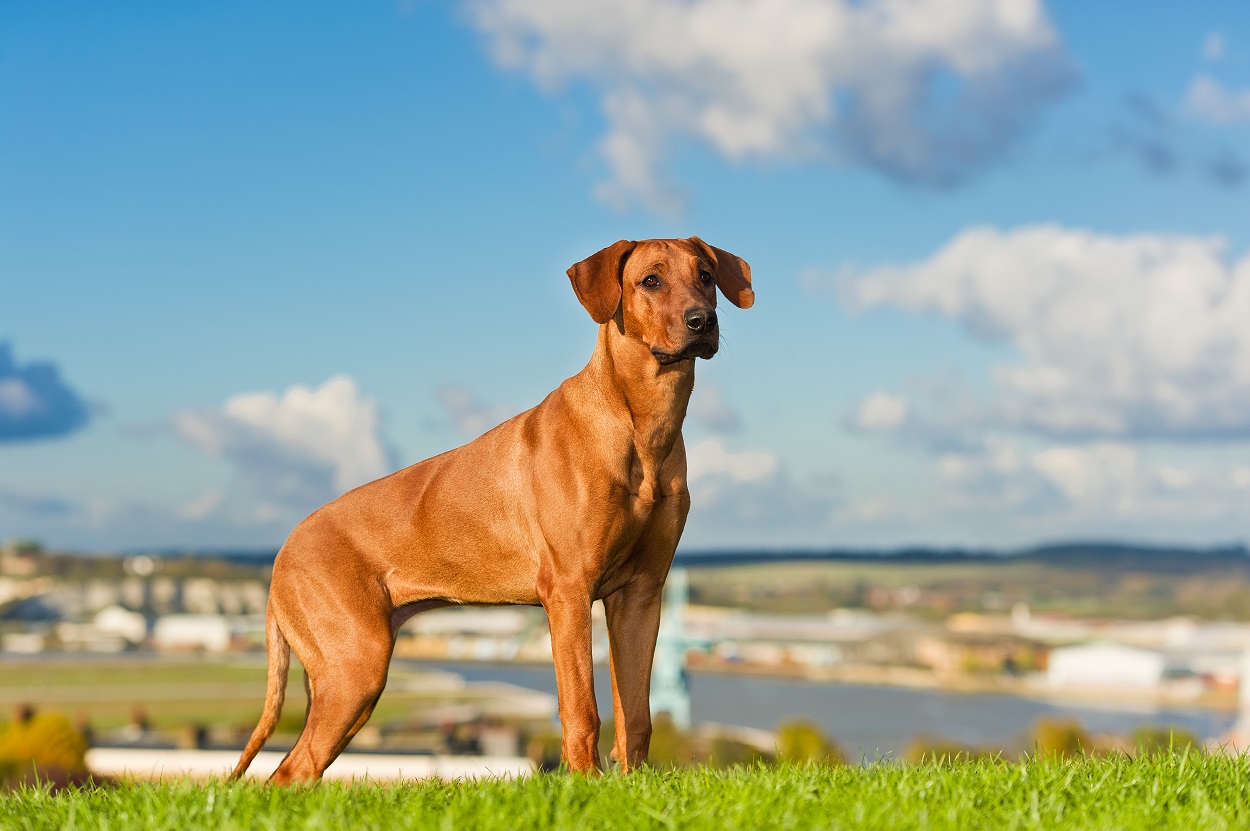
The Rhodesian ridgeback was bred as a hunting dog for lions and large game.
Incredibly loyal and protective of their families, ridgebacks are one of the most effective options at your disposal if you are looking for a guard dog.
Affectionate and companionable, there is much more to this breed than a protective streak.
You will not need to give a Rhodesian ridgeback any specialized guard dog training. If you attempt this, you may increase the protective instincts of the breed too much. Instead, devote some time to simple obedience training.
15) Komondor
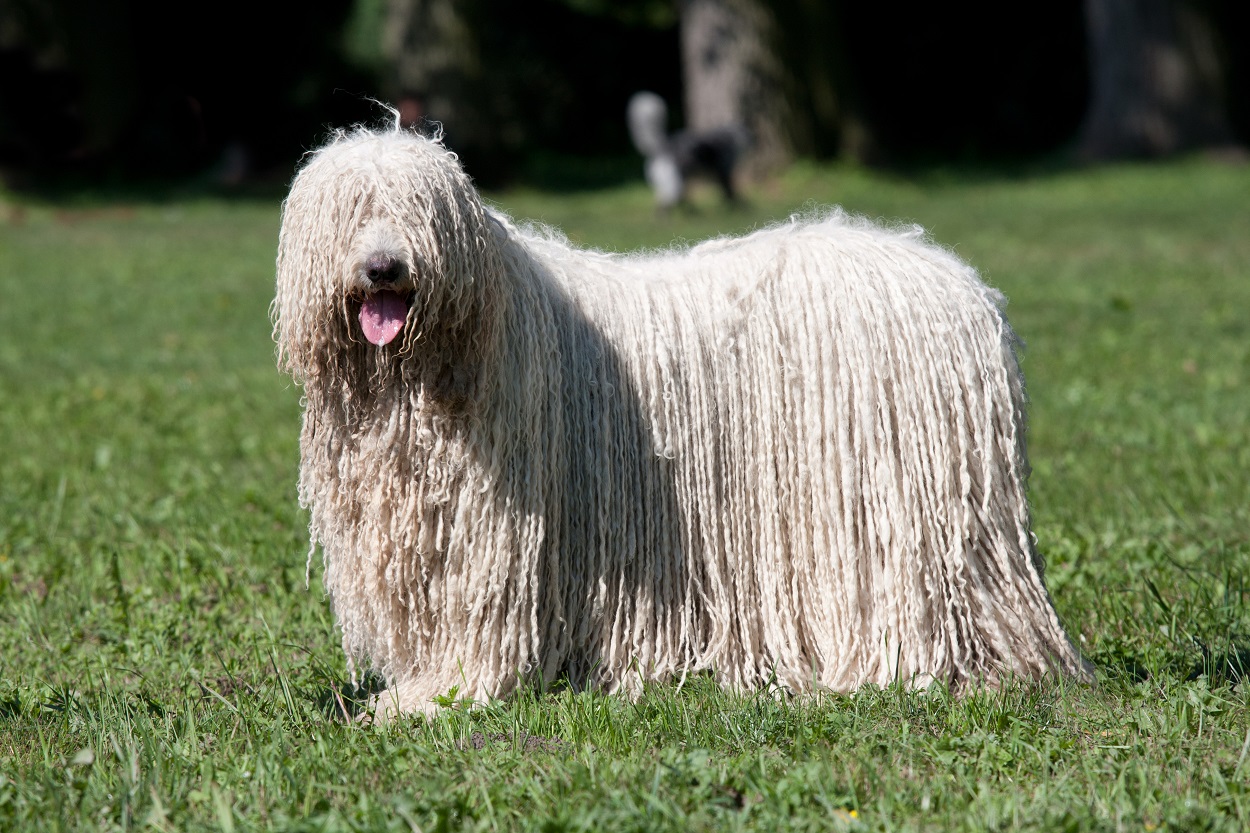
The Komondor is one of the most visually striking dogs with trademark dreadlocks giving it a unique appearance.
Don’t be fooled by that white corded coat, though. This breed is big and string, and also filled with courage. First bred in Hungary to guard property and livestock, the Komondor retains these instincts today.
This breed is typically affectionate with family but reserved with strangers.
Conclusion
If you require a guard dog at home, we hope today’s guide has given you lots of inspiration and plenty of suitable breeds to pop on your shortlist.
Pay attention to those breeds we flag as unsuitable or inadvisable for first-time owners and avoid getting the wrong sort of dog for your needs.
We have an extremely busy content calendar here at GO Boxer Rescue as the holiday season gets underway. We would recommend that you bookmark our blog before you head off today. Reach out the to the friendly team in the comments below the articles and let us know if we missed your favorite guard dog breed in today’s roundup. See you soon!
